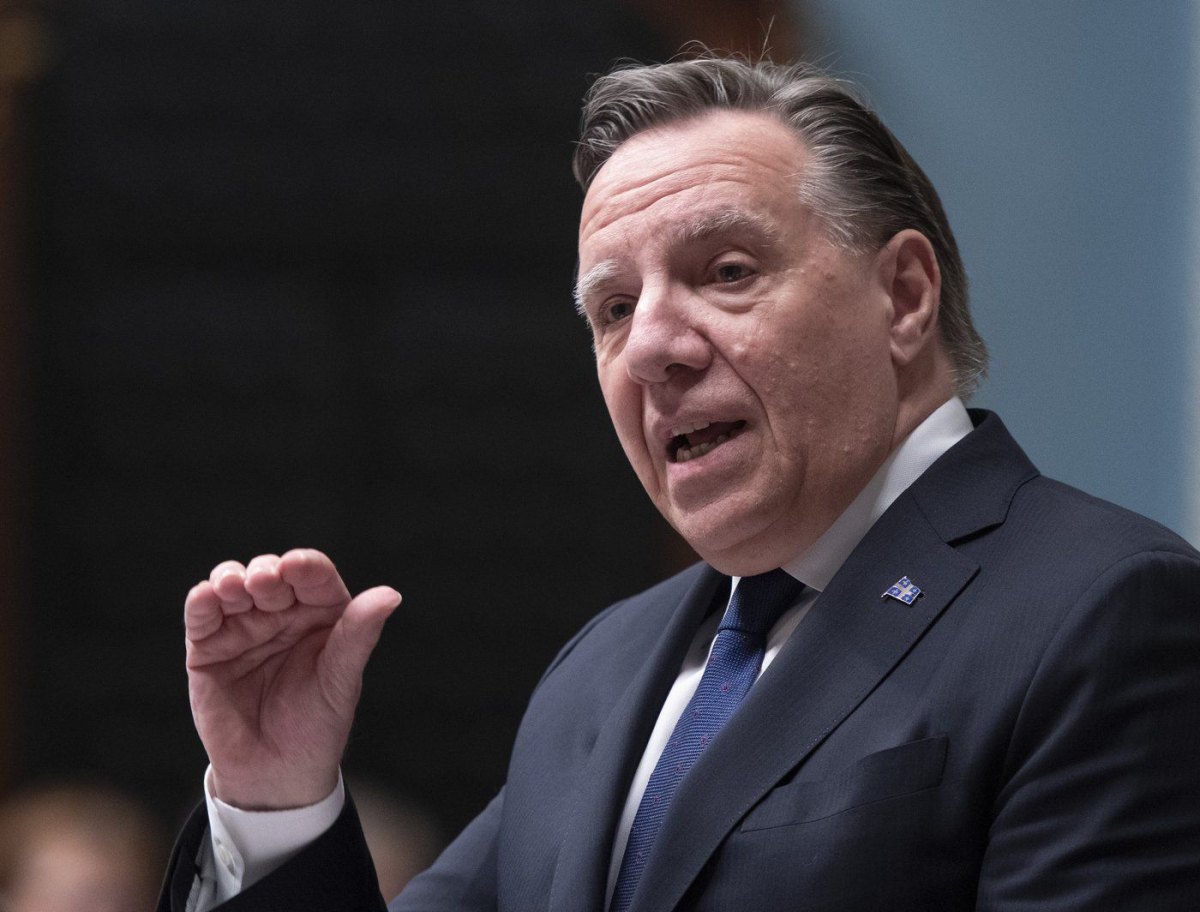Support strong Canadian climate journalism for 2025
Quebec Premier François Legault sought to reassure anglophones that his government's language law reform, adopted on Tuesday, won't prevent people from accessing health care in English.
The law, known as Bill 96, passed by a vote of 78-29, with the Opposition Liberals opposing it on the grounds that it goes too far and the Parti Québécois opposing it on the grounds that it is too timid.
Legault told reporters after the vote that the law introduced by his Coalition Avenir Québec party is "moderate," striking a balance between the positions of the Liberals and the PQ. He accused critics of the law of "adding fuel to the fire" by saying health services could be threatened.
"We are committed to protecting your access to health care in English. It's a historical promise that we will keep," Legault said at the legislature. "I know of no linguistic minority that is better served in its own language than the English-speaking community in Quebec. We are proud of that, and we are also proud to be a francophone nation in North America, and it's our duty to protect our common language."
Legault said he believes most Quebecers support the law, and that while "a few people" want the province to become bilingual, the majority of anglophones accept that French is Quebec's common language.
"We're unique in North America, we speak French," Legault said. "Montreal is a place where people have fun in French, but the services are (available) in English in schools, in hospitals." Anglophones, he said, "have the best of both worlds."
Prime Minister Justin Trudeau said earlier in the day that he is concerned about the effect of the bill on Quebec's English-speaking minority and that he was waiting to see the final version of the bill before saying whether the federal government would support a court challenge.
"We have concerns about the latest version of Bill 96," Trudeau told reporters in Vancouver. "We continue to watch very, very carefully what final form it will take, and we'll make our decisions based on what we see is the need to keep minorities protected across this country."
The law proactively invokes the notwithstanding clause of the Canadian Constitution to shield it from charter challenges.
Constitutional lawyer Julius Grey said a legal challenge to the law is already being planned.
"There would never be a law of this importance and, I would say, this inequity that would not be challenged," he said in an interview Tuesday.
Among the elements that concern Grey is the powers it gives language law inspectors.
"It's very peculiar to know that Quebec is a jurisdiction in which the police, in investigating a murder, must follow the charter and they can't come in and grab your computer in your home, et cetera, but the Office de la langue française investigating the use of English, or another language, can come in and just grab," he said.
Grey said an ongoing legal challenge to Quebec's secularism law, which also proactively invoked the notwithstanding clause, could establish what elements of the language law can be contested.
Some elements of the bill are not covered by the notwithstanding clause and could be challenged regardless, Grey said, including elements that restrict the use of English in the courts and a change to the Canadian Constitution establishing that "Quebecers form a nation" and that French is Quebec's official language.
Quebec's second largest opposition party, Québec solidaire, voted in favour of the bill, despite expressing concerns about a provision that requires immigrants to communicate with the government in French after they've been in the province for at least six months.
Liberal Leader Dominique Anglade told reporters after the vote that her party opposed the bill for "many reasons," including concerns it will limit access to health care in English, cap enrolment at English-language junior colleges and circumvent the provincial and federal rights charters through use of the notwithstanding clause.
The PQ had called for the bill to prevent most immigrants and francophones from attending English-language junior colleges.
This report by The Canadian Press was first published on May 24, 2022.
— By Jacob Serebrin in Montreal, with files from Mia Rabson in Ottawa and Jocelyne Richer in Quebec City.




Comments